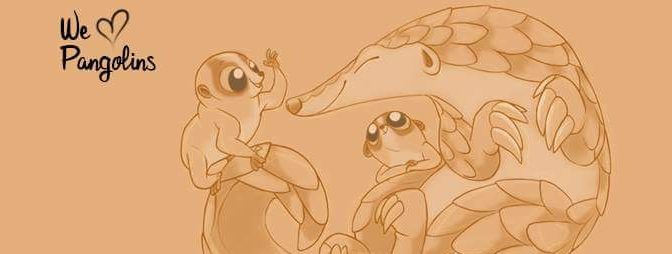World Pangolin Day

Pangolins are unique and extraordinary mammals characterised by their scaly skin, which protects them in the wild. Eight species of pangolins inhabit Asia and Africa: Indian pangolin, Chinese pangolin, Sunda pangolin, Philippine pangolin, tree pangolin or white-bellied pangolin, long-tailed pangolin or black-bellied pangolin, giant pangolin and Temminck’s ground pangolin.
The name pangolin derives from the Malay word ‘penggulung’, which means roller. This name is representative of how pangolins behave when they feel threatened, rolling up into a ball. Pangolins are solitary mammals and are primarily nocturnal. They inhabit various different types of forest such as tropical, limestone, bamboo, broad-leaf and coniferous forests. Grasslands and agricultural fields may also be suitable habitats for pangolins. Their diet consists of ants and termites.
According to the IUCN, pangolins are the world’s most trafficked mammal. Their popularity in the illegal wildlife trade is due to poachers selling them as meat and their scales being used in traditional medicine to treat psoriasis and poor circulation. Two species have been listed as Critically Endangered, the Chinese and Sunda pangolin. Indian and Philippine pangolins are Endangered and the four remaining species of pangolin are Vulnerable. These classifications reveal the threat pangolins face from extinction. With more than one million individuals being taken from the wild over the past decade, there is no better time than now to take action and help save the pangolin from extinction. We must give pangolins a voice.
Current Condition of Pangolins
Although protected by strict trade laws, a pangolin is taken from the wild every five minutes. Today, BBC news reported that a recent study has found that ‘animal traffickers are taking advantage of remote ivory trade routes to smuggle one of the world’s most endangered animals out of Central Africa’.
Since 2001, the Little Fireface Project team has been including pangolins in our survey work throughout Southeast Asia. These surveys include their wild habitat and sadly in the markets too. LFP Research Associate Dr Nabajit Das of the University of Guwahati is undertaking one of the first studies of pangolins in Assam, Northeast India.
On the 17th February a global pangolin day is being held in celebration of this incredible mammal. You can help save the pangolin from extinction by raising awareness of the cruelty imposed on this animal by:
Sharing this article
When traveling, don’t buy pangolin meat or products such as pangolin leather.
Support pangolin conservation and charities such as Tikki Hywood Trust
Spread the word!
by Lucy Holland

